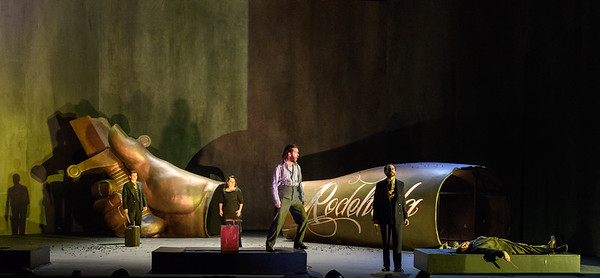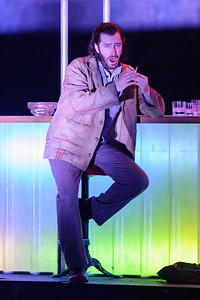London Coliseum, 26 October, 2017
Richard Jones is becoming as much a key element for ENO today as David Poutney was a generation ago. The wide range of his productions are all united in a fierce concentration on detail and a deep sense of humanity. Singers rarely stand and sing, unless they are addressing the audience directly, and even within the strictures of opera seria he generates a sense of heightened normality which carries the narrative forward rather than halting it every time an aria pops up.
All of this is very obvious in his presentation of Handel’s Rodelinda where the story line may stretch the imagination but the relationships and the emotional truth of the characters is never in doubt.
Rebecca Evans returns as Rodelinda and her nobility is ever present, along with a wonderful flexibility of musical line, regardless of what Richard Jones is asking her to do. Tim Mead as her husband Bertarido is new to the production but creates a complex individual, splendidly uneasy in the bar-room scene, yet heroic when the need arises.
There is subtle comedy in the work provided by Susan Bickley’s Eduige and Neal Davies blood-thirsty Garibaldo, and Matt Casey’s unspeaking Flavio is a visual delight throughout. Christopher Lowrey’s Unulfo is regularly on the receiving end from the royals around him but his finely focused counter-tenor made the part seem more eloquent than maybe Handel intended.
Juan Sancho’s Grimoaldo seemed petulant at first but as the evening developed his emotional turmoil became more overt and he created a fine range of emotional states.
Christian Curnyn was once more in the pit, maintaining excellent pace and bite for what is, after all, a long evening. Thankfully, in the hands of these performers, it never seemed so.


